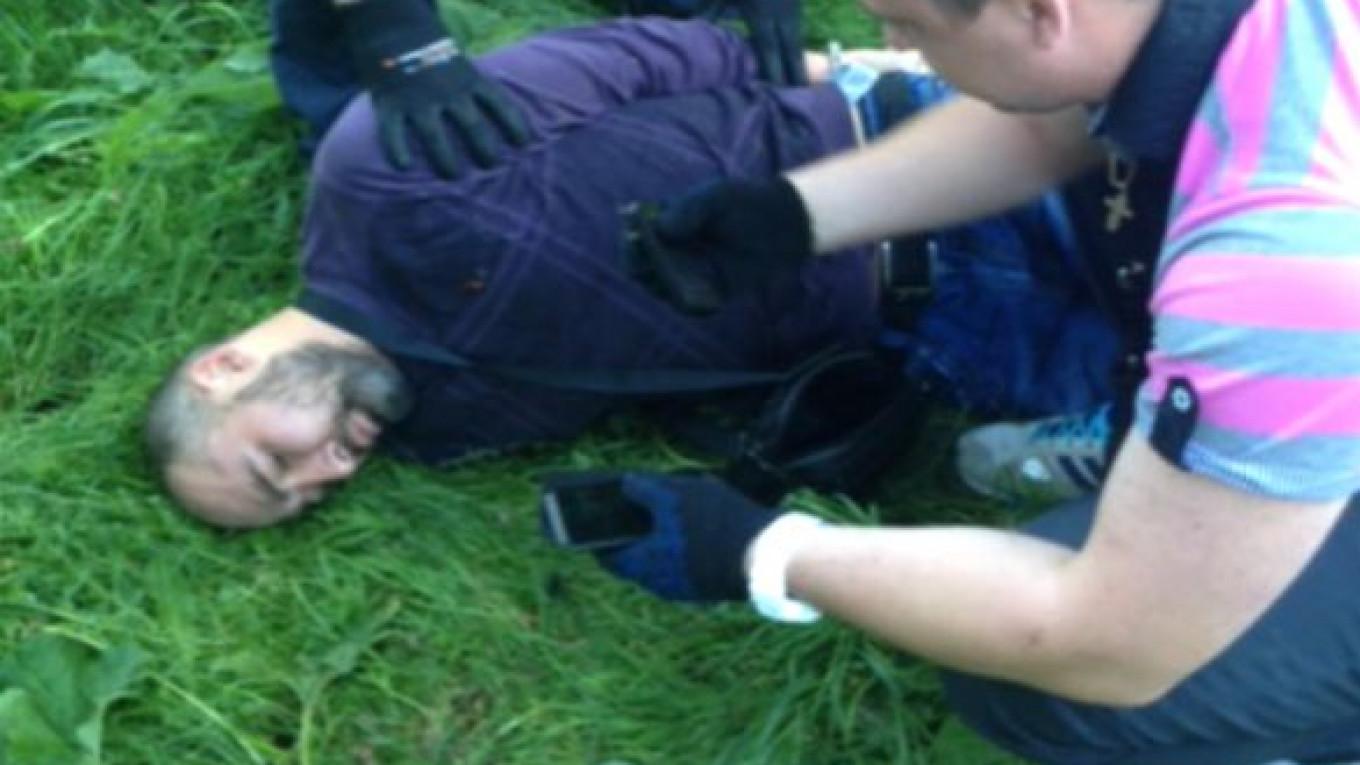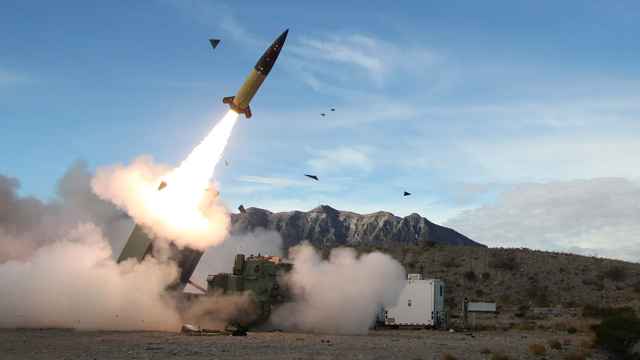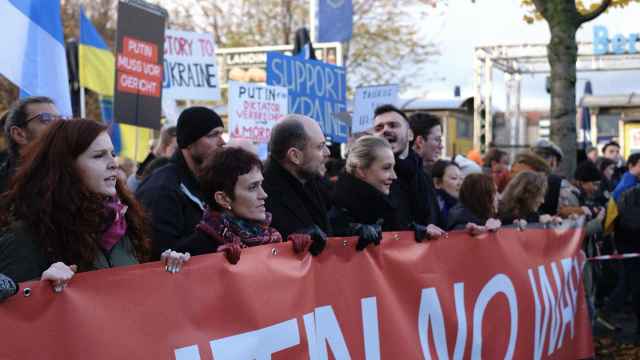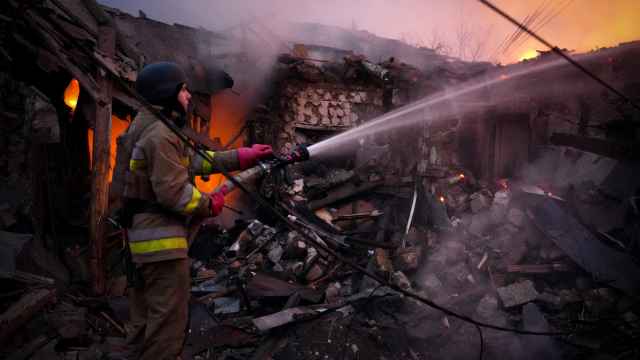As news broke Thursday that the Federal Security Service arrested the suspected leader of a militant group planning terrorist acts in Moscow, experts cast doubt on the credibility of information provided by law enforcement agencies.
Yulai Davletbayev, 42, a Russian citizen of Bashkir origin who was working as a taxi driver in Moscow, has been arrested in connection with a terrorist plot uncovered in May, the National Anti-Terrorism Committee said in a statement Thursday.
Davletbayev used his occupation as a taxi driver to scout out potentially vulnerable spots in the city for a future attack, investigators said.
The alleged plot was first revealed on May 20, when two of Davletbayev's accomplices were killed and one arrested by security services during a special operation in the Moscow region.
The surviving terrorist suspect, Robert Amerkhanov, reportedly gave Davletbayev up and testified that the group was controlled by the Islamic Party of Turkestan and told to attack Moscow and then escape to Afghanistan, where members of the group were already fighting the U.S.-led ISAF coalition.
The Islamic Party of Turkestan, also known as the Islamic Movement of Uzbekistan, is a militant Islamist group formed in 1991 to establish an Islamic state under Sharia law across the Fergana Valley — a region spread across eastern Uzbekistan, Kyrgyzstan and Tajikistan — and throughout all of Central Asia, including the Chinese Uighur border province of Xinjiang.
Investigators say Davletbayev's accomplices were all Russian citizens who were trained in a region along the Afghanistan-Pakistan border, possibly in North Waziristan, which is largely controlled by al-Qaeda.
But analysts interviewed by The Moscow Times said it was unclear why an organization with a goal to establish an Islamic state in Central Asia would order an attack in the Russian capital.
“I don't buy this version,” said Alexei Malashenko, scholar-in-residence at Carnegie Moscow Center. “It is unclear whether the Islamic Party of Turkestan exists at all, and I've never heard of anybody in Central Asia trying to organize an attack in Moscow.”
Speaking at the 12th meeting of the heads of foreign special services in Kazan on Wednesday, FSB director Alexander Bortnikov specifically mentioned the Islamic Party of Turkestan among the organizations that “pose a serious threat,” Interfax reported.
In 2002, the U.S. State Department classified the movement — which it referred to as the Islamic Movement of Uzbekistan — as a foreign terrorist organization, calling it “a threat to the security of Uzbekistan and to the region” that has “close ties to al-Qaeda and has received al-Qaeda funds.”
But Andrei Soldatov, an intelligence analyst and founder of the Agentura.ru think tank, said there were other holes in the account provided by authorities, noting that it was unclear what kind of explosive the suspects had planned to use.
“We have only seen their pictures, but we have not seen any actual explosives. If these people were trained in Afghanistan or Pakistan, they should have mastered the art of making bombs,” he said.
According to the FSB, among the items confiscated during the May 20 operation were parts of suicide vests, detonators and shrapnel.
“Also, it is unclear how the FSB could have foiled the group's plans to prevent an attack on May 9 on May 20,” he said, referring to a statement from the National Anti-Terrorism Committee that said the group had been planning an attack during the Victory Day holidays.
“My view is that the FSB is making up at least some parts of this story in order to pursue its own rhetorical agenda,” said Malashenko, while Soldatov recalled that there seemed to be a broad campaign since the beginning of 2013 of arresting “terrorists and Islamists from Central Asia, half of whom are then released.”
One such operation took place in February in St. Petersburg, where the Investigative Committee reported detaining 271 people at a mosque as part of a criminal investigation into “public incitement to terrorist activities or public justification of terrorism.”
Most of those detained were quickly released, however.
“I believe that these people came to Moscow, but the question is what they were really doing here, whether they wanted to establish a terrorist base. There are many things a terrorist organization can do,” Soldatov said.
Contact the author at i.nechepurenko@imedia.ru
Related articles:
A Message from The Moscow Times:
Dear readers,
We are facing unprecedented challenges. Russia's Prosecutor General's Office has designated The Moscow Times as an "undesirable" organization, criminalizing our work and putting our staff at risk of prosecution. This follows our earlier unjust labeling as a "foreign agent."
These actions are direct attempts to silence independent journalism in Russia. The authorities claim our work "discredits the decisions of the Russian leadership." We see things differently: we strive to provide accurate, unbiased reporting on Russia.
We, the journalists of The Moscow Times, refuse to be silenced. But to continue our work, we need your help.
Your support, no matter how small, makes a world of difference. If you can, please support us monthly starting from just $2. It's quick to set up, and every contribution makes a significant impact.
By supporting The Moscow Times, you're defending open, independent journalism in the face of repression. Thank you for standing with us.
Remind me later.






